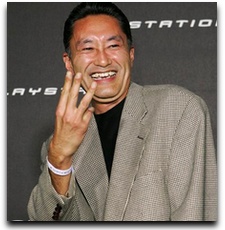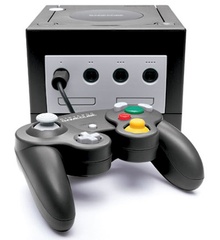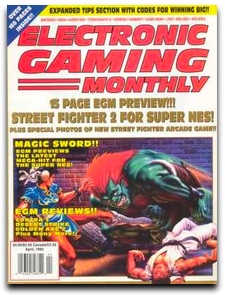Why Doesn’t iTunes Have Game Trials?Why Doesn’t iTunes Have Game Trials?
Nothing is more annoying than going into iTunes to see what video games are available for the iPod Touch and iPhone to find it cluttered with hundreds of duplicate games. Developers seem to find it most useful to release two games instead of one single game: a full version and a “lite” version.
 Developers know gamers want to try before they buy, so many will create a game they’re hoping to sell, then a limited “lite” version with partial levels or stripped of features. They’re obviously trying to work around the fact that Apple released a half-assed game shopping experience. These pro and lite versions assist in cluttering the shopping space.
Developers know gamers want to try before they buy, so many will create a game they’re hoping to sell, then a limited “lite” version with partial levels or stripped of features. They’re obviously trying to work around the fact that Apple released a half-assed game shopping experience. These pro and lite versions assist in cluttering the shopping space.
iTunes App Store should allow users to trial a game by allowing them to download a neutered version of the game title or using a time-trial like many other downloadable game services. Electronic game downloads are usually non-refundable because you can never give back a product which you can make infinite copies. The solution to getting users to buy into your product is to allow them to try before they buy.
Apple’s obviously enjoying the immense game sales from the application store but they may be able to increase their sales by allowing gamers to see what they’re buying before they walk away empty handed. This would also limit the total products found in the App Store because developers won’t have to post to revisions to their game title to allow gamers to try before they buy them.
There are some obvious downsides, Apple wouldn’t be able to boast the thousands of products in their store because many would be substituted for a real game download system. Okay, that’s really the only download I can think of… any others?
Developers may opt out of a trial system, forcing gamers to buy it before they try it based on the text and screenshots or utilize a time trial or limited featured version.
Thoughts?

 This leaves Sony with some hard decisions. Restructuring can mean drastic changes that effect all their product lines. The PlayStation 3 isn’t currently a shining example of high profit margins. The console needs time to reduce its overall cost, chip sizes and bring profitability. Is it in danger?
This leaves Sony with some hard decisions. Restructuring can mean drastic changes that effect all their product lines. The PlayStation 3 isn’t currently a shining example of high profit margins. The console needs time to reduce its overall cost, chip sizes and bring profitability. Is it in danger? This is not the fault of GameStop and their 48% profit margins because they’re only getting 7% to 20% profit margins (
This is not the fault of GameStop and their 48% profit margins because they’re only getting 7% to 20% profit margins ( Guitar Hero III hits
Guitar Hero III hits  “Last time I checked, they’ve never had a console that’s been on the market for more than four or five years and we’ve committed to a ten year life cycle, so you do the math…,” he says. He goes on to state that the Xbox 360 won’t have a larger install base by the end of their 10-year plan has been completed, “unless things go really bad.”
“Last time I checked, they’ve never had a console that’s been on the market for more than four or five years and we’ve committed to a ten year life cycle, so you do the math…,” he says. He goes on to state that the Xbox 360 won’t have a larger install base by the end of their 10-year plan has been completed, “unless things go really bad.” Before Sony fans unite to comment storm, remember, the PS2 had a lot of great games and continues to have games coming through for its console. People are still debating the life-span of the Wii product line, regardless to overall sales figures while the PS2 no doubt had a long live and still continues to have a long life, heck 30%+ of gamers still play the darn thing. Sony has been able to utilize the PS2 and its profitability to glide through the initial PS3 sales slump and get the momentum growing for their current generation console.
Before Sony fans unite to comment storm, remember, the PS2 had a lot of great games and continues to have games coming through for its console. People are still debating the life-span of the Wii product line, regardless to overall sales figures while the PS2 no doubt had a long live and still continues to have a long life, heck 30%+ of gamers still play the darn thing. Sony has been able to utilize the PS2 and its profitability to glide through the initial PS3 sales slump and get the momentum growing for their current generation console. The question of the day, “Do HD graphics matter to gamers?” If you’re currently rolling with a PS3 or Xbox 360 and you’ve got HDMI and or sweet component cables you’re probably saying, “duh, of course they do.” What about everyone else, those Wii consoles for instance, there are so many of those. What about gamers that do not know what HDMI means?
The question of the day, “Do HD graphics matter to gamers?” If you’re currently rolling with a PS3 or Xbox 360 and you’ve got HDMI and or sweet component cables you’re probably saying, “duh, of course they do.” What about everyone else, those Wii consoles for instance, there are so many of those. What about gamers that do not know what HDMI means?
 Granted, there were other glossy magazines prized by young boys too, but we were old enough to purchase Electronic Gaming Monthly, now known as EGM by the hip and cool. Although EGM was founded in 1989, many adults between the age of 29 and 35 probably spent their youth flipping through the pages reading the reviews and editorials.
Granted, there were other glossy magazines prized by young boys too, but we were old enough to purchase Electronic Gaming Monthly, now known as EGM by the hip and cool. Although EGM was founded in 1989, many adults between the age of 29 and 35 probably spent their youth flipping through the pages reading the reviews and editorials.